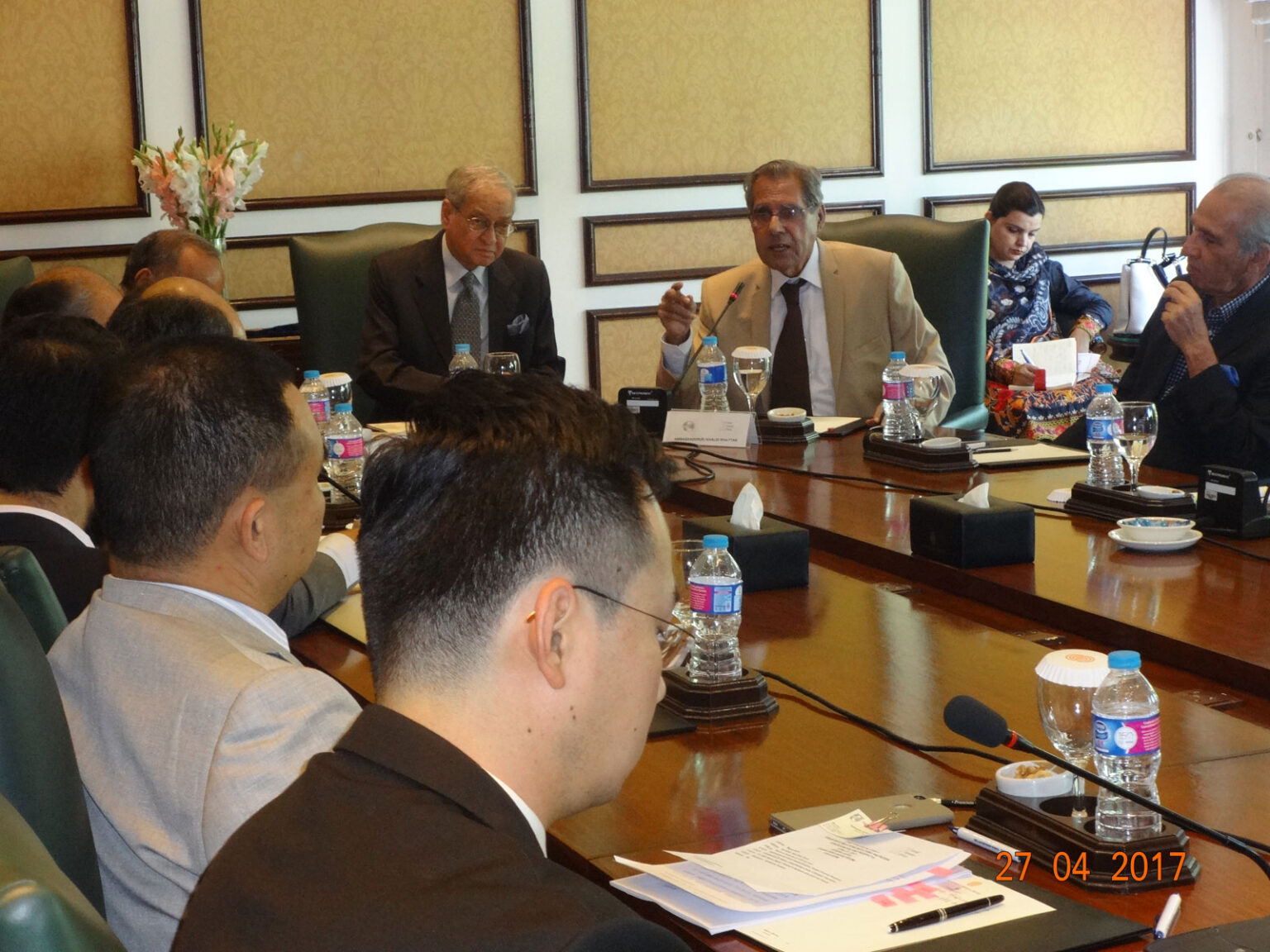A round table discussion was jointly organized by the Center for International Strategic Studies (CISS) Islamabad and Konrad-Adenauer-Stiftung (KAS) titled “Relations with China and Russia: Opportunities and Prospects “on April 27th 2017 at Serena Hotel Islamabad. The objective of the event was to discuss the ongoing geopolitical power play between major powers China, Russia and US and analyzing Pakistan’s response and policy options.
Dr Zafar Nawaz Jaspal, Ambassador (rtd) Khalid Khattak and Ambassador (rtd) Hassan Javed were the speakers at the round table.
Speakers at the Conference besides exploring the contours of the relations of Pakistan with China and Russia looked at the future trajectories and possibilities.
Executive director CISS, Ambassador Ali Sarwar Naqvi in his opening remarks thanked the participants and speakers for attending the event. Ambassador Naqvi said that purpose of this Roundtable is to explore the contours of the relations of Pakistan with China and Russia.
Ambassador Naqvi, while presenting the conclusions of the conference, noted that “cross-cutting relationships were coming up in the region without entirely impacting the old relations.” He cited examples of Pak-China relationship remaining strong but at the same time Beijing and Delhi working to improve their ties, similarly Russia is maintaining its traditional relations with India, but is also developing friendship with Pakistan. US, meanwhile, despite its preference for strategic partnership with India is not ditching Pakistan either.
Amb Naqvi recalled that simultaneously three major efforts at containment are also underway with India containing Pakistan, US containing China, and US along with Western allies containing Russia.
Dr Zafar Nawaz Jaspal, associate professor at Quaid-e-Azam University’s School of Politics and International Relations, urged Pakistan government to pursue realistic policies to protect vital interests of the country.
“We have to move carefully. There is no brotherhood in international relations, everyone moves according to national interest. Instead of entirely relying on China and Russia, it would be better to have proactive and innovative strategies,” he said cautioning that while Pakistan’s relations with both Beijing and Moscow were on positive trajectories there could be challenges ahead as well.
Dr Jaspal said Russia, China and Pakistan all have concerns about the situation in Afghanistan and are also worried about rise of Islamic State (Da’ish). This, he believed, could bring the three countries further closer.
It should be recalled that Russia, China and Pakistan out of their concern for the aggravating situation in Afghanistan and growing footprint of Da’ish there started a trilateral process, which has now expanded to include 12 regional countries. A meeting of these 12 countries hosted by Moscow earlier this month ended with call for Taliban to end violence and join peace process, which Russia offered to sponsor.
Pakistan’s former envoy to Russia Amb Khalid Khattak recapped the events that led to improvement of Islamabad-Moscow ties and observed that mutual concerns about Afghanistan brought the two countries further closer.
“Russia moved from an ideological position of being dismissive of Taliban and has come to recognize them as a reality. It is here that positions of Pakistan and Russia have come closer and convergences clear,” he said. The former ambassador was of the opinion that improved China-Russia ties also helped development of Pak-Russia relations.
His word of advice of the policy makers was to come out of the cold war era mentality while working on external relations and instead of looking at things from the prism of alliances and blocs, should consider them on their merit.
Amb Syed Hasan Javed, director Chinese Studies Centre at NUST, said China, Russia and the Central Asian Republics share Pakistan’s interest in seeing a peaceful and stable Afghanistan free from foreign interference.
China, he emphasized, is committed to economic rehabilitation and broad based reconciliation process in Afghanistan as it values regional stability in and around its periphery in view of its focus on economic development.
The talk was followed by a detailed question and answer session where participants raised a number of questions regarding the subject of the round table.
Media Coverage
Ali Sarwar Naqvi is Executive Director at the Center for International Strategic Studies (CISS), Islamabad.

